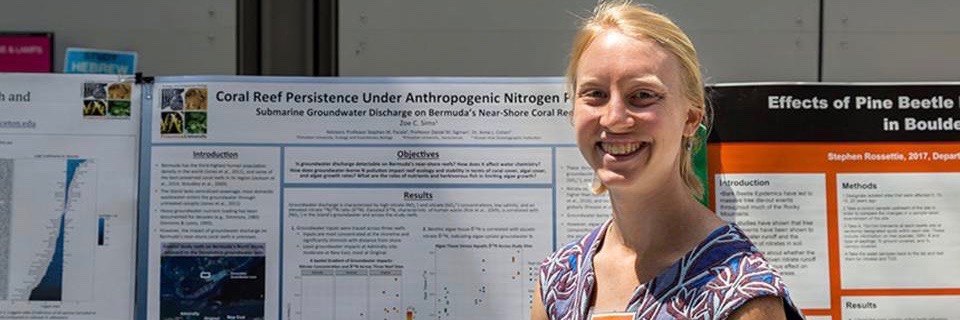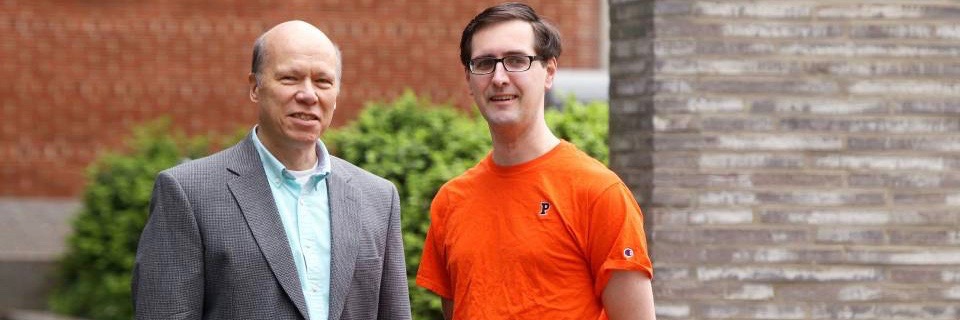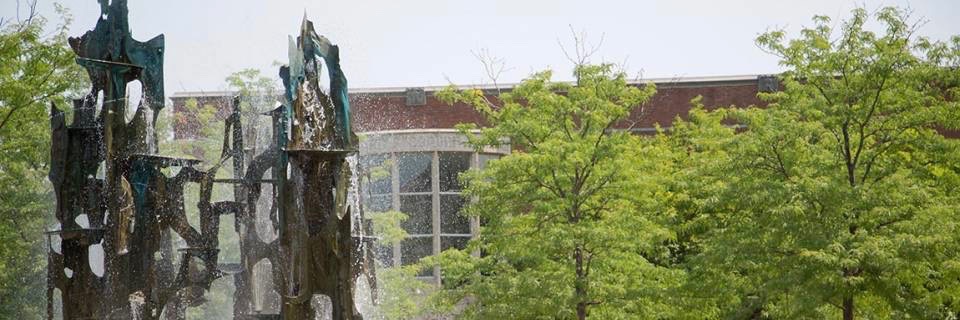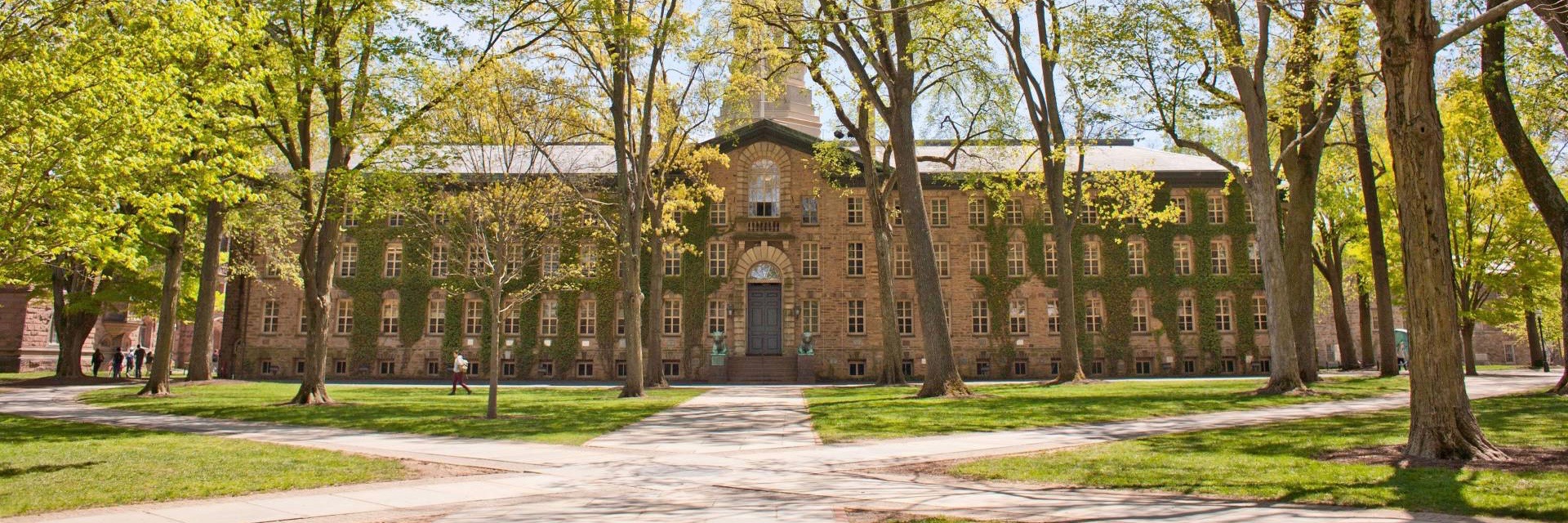While at Princeton, Alisha Holland, a 2007 alumna, wrote her senior thesis on the political and legal responses of Central American nations to rampant gang-related violence, and traveled to El Salvador and Guatemala to conduct fieldwork.
Category Archives: Uncategorized
A passion for nature drives senior Zoe Sims’ excellence in environmental studies
Sims, who graduated from Princeton University June 6, was studying the effects of groundwater pollution on the health of Bermuda’s coral reefs, a topic that would become the focus of her senior thesis research. But her initial search for the points where freshwater from the island enters the sea had been fruitless. Finally, one of the graduate students helping Sims asked what she wanted to do next.
Analysis shows carbon-slashing promise of new biofuel technology
Understanding the universe: Astrophysicist Dunkley shines through her research
Peter and Rosemary Grant receive Royal Medal in Biology
Peter Grant, the Class of 1877 Professor of Zoology, Emeritus, and professor of ecology and evolutionary biology, emeritus, and B. Rosemary Grant, senior research biologist, emeritus, ecology and evolutionary biology, have been named recipients of the Royal Medal in Biology. The Grants’ legendary explorations of the group of 18 bird species known as Darwin’s finches that populate the Galápagos island of Daphne Major — which is in an entirely natural state unaffected by humans — over four decades have produced an array of dazzling insights into evolutionary theory.
Board approves eight promotions
Princeton engineering professor George Luchak, whose work helped astronauts land on the moon, dies at 97
George Luchak, a professor of civil engineering emeritus who taught at Princeton for two decades, died June 6 at his Princeton home. He was 97. Luchak specialized in analyzing technical innovations, including the module that landed men on the moon in 1969.
At the cellular level, a child’s loss of a father is associated with increased stress
Researchers identify a common underlying genetic basis for social behavior in dogs and humans
Dogs’ ability to communicate and interact with humans is one the most astonishing differences between them and their wild cousins, wolves. A new study published today in the journal Science Advances identifies genetic changes that are linked to dogs’ human-directed social behaviors and suggests there is a common underlying genetic basis for hyper-social behavior in both dogs and humans.
Researchers find path to discovering new topological materials, holding promise for technological applications
An international team of researchers has found a way to determine whether a crystal is a topological insulator — and to predict crystal structures and chemical compositions in which new ones can arise. The results, published July 20 in the journal Nature, show that topological insulators are much more common in nature than currently believed.
Scientists create first laboratory generation of high-energy shock waves that accelerate astrophysical particles
Throughout the universe, supersonic shock waves propel cosmic rays and supernova particles to velocities near the speed of light. The most high-energy of these astrophysical shocks occur too far outside the solar system to be studied in detail and have long puzzled astrophysicists. Shocks closer to Earth can be detected by spacecraft, but they fly by too quickly to probe a wave’s formation.
Historian Cannadine named president of the British Academy
Exposure to violence hinders short-term memory, cognitive control
Princeton renews strategic partnership with Humboldt University in Berlin
Princeton’s Annual Giving campaign raises record-setting $74.9 million
Princeton University’s 2016-17 Annual Giving campaign raised $74,912,035, with 56.8 percent of undergraduate alumni participating. This historic achievement — Princeton’s first-ever Annual Giving campaign in excess of $70 million — represents strong performances across all of Princeton’s constituencies: undergraduate alumni, graduate alumni, parents and friends.


















